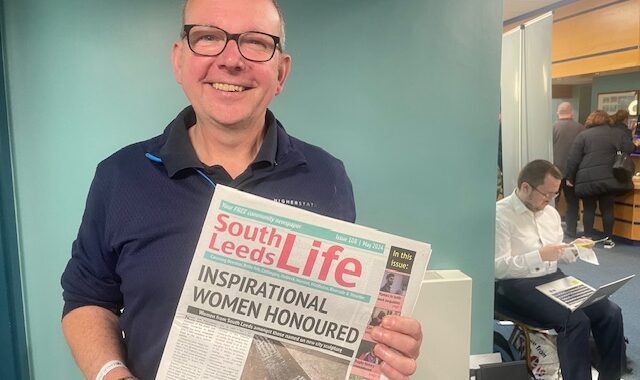In January 2014, I created Alt Reading – a news website that covers arts, culture, entertainment, independent business and local interest stories in Reading. I launched the site without any background in journalism and minor experience as a press officer.
We’re now approaching our second birthday and we’re still going strong. However, to make it this far I had to learn a few lessons along the way. Here are 5 lessons I learned during my first year running a hyperlocal website.
Know your limits
Alt Reading has grown hugely over the last year. Not just in terms of web traffic and readers, but in the amount of content we produce.
In our first year we produced around 4-7 articles a week. Now, as we approach our second birthday, we produce 8-15 articles each week, a full events listings and weekly e-newsletter.
I have always been ambitious about what I think Alt Reading can achieve, but sometimes my ambition would be my worst enemy. I took me a long time to balance a full-time job, my social life and Alt Reading – during our first few months we would frequently go days without publishing content as I struggled to keep on top of my various workloads.
By building a team of skilled volunteers I have been able to give myself the occasional break from Alt Reading. Additionally, tools such as Tweetdeck and scheduling publications on WordPress as allowed me to step away from my computer screen.
Last month we launched our new events listings: a massive undertaking with over 400 currently advertised on our website. This new project has only come about thanks to months of preparation and a clear understanding of how much time and energy I can realistically put into it.
Find your niche
Reading is saturated for local media. Our town has two local newspapers, three radio stations, dozens of community publications and us. As a hyperlocal publication, it can be quite a challenge to make your voice stand out.
At times during our first year, I found myself trying to beat the other newspapers at their own game: obsessing over being the first to break stories. Ultimately, this just left me feeling exhausted and damaged the quality of our content.
Now whenever, I see one of the local newspapers break a news item before us I no longer rush to put out the same content. Instead, I try to think of new and unique ways we can approach the story.
One of the key reasons Alt Reading has succeeded is because we filled a gap in the market. Reading lacked a cultural publication despite a growing appetite for independent businesses, theatre, comedy and music in the town.
There is no point in having four different news organisations producing the same content. By exploring stories in new and interesting ways you will not only improve your hyperlocal, but benefit the whole community.
Have a support network
Running a hyperlocal requires a lot of time and energy for very little reward. There can be weeks where you struggle to find content, where your stories don’t do as well as you hoped or when you just want to be doing something else.
Since Alt Reading launched, two other hyperlocals popped up in Reading, had some degree of success before disappearing again. Alt Reading has now been running for close to two years without any slowdown in content production. I believe the reason we’ve managed to survive for so long is because we have a good support structure in place.
Our team of volunteer writers has grown, enabling me to have a little more free time away from Alt Reading. We have built positive links with the local community who provide encouragement even when traffic stagnates. Most importantly, I have people in my personal life who are supportive and have been able to console me when I’m feeling down and give me the occasional kick up the bum when needed.
No matter how passionate you are about your publication, your energy will flag eventually. The best way to get past your hump days or hump weeks is to build a support network to keep you pushing through.
Always look for new audiences
Like many other hyperlocals, I have a love/hate relationship with Facebook. Some days it seems to drive huge numbers of people to our website, and on other days our posts struggle to reach that many people.
In our first year, over 70% of traffic was coming from Facebook and this terrified me. All it would take was a slight change in algorithm to see our web traffic collapse. As a result, I began to explore new ways of reaching readers.
Our e-newsletter went through a massive update to make it easier to read, our Twitter strategy changed which saw a 200% increase in traffic and we began to build a presence on platforms like Instagram and Reddit.
Organic growth on Facebook and Twitter can be slow, but we have seen massive leaps in our audience numbers by finding forums, Facebook groups and other social media platforms where our content would be welcome.
You can’t make everyone happy
In the first few months of running Alt Reading we were very focused on establishing a positive and credible reputation as a publication. Our stories tended to be positive and our reviews almost always were positive.
One of our writers produced a simple article on some of the best venues for live music in Reading. I hit publish and was completely shocked by the reaction we received.
The comment section filled up with angry promoters and artists that certain venues weren’t included in the list. I saw the article shared on Facebook with angry notes like ‘who do these guys think they are?’
We tried to appease the angry commenters to no avail and I feared that our fragile reputation was all but destroyed. However, by the next morning the dust had settled and people had moved on. Our readers didn’t abandon us and our audience continued to grow.
I soon realised that our attempt to build a credible reputation by being constantly positive was contradictory. How could we be credible if we weren’t willing to criticise or critique things?
We became less reticent in criticising gigs or shows and less afraid to challenge organisations and bodies for their actions. As a result, our opinions carry more weight and our endorsements feel more genuine.
We still get the occasional backlash to what we publish, but I’ve realised that there will always be people who disagree with you. So long as you can back up what you say then you will receive as much respect for being open and honest as you will criticism.





